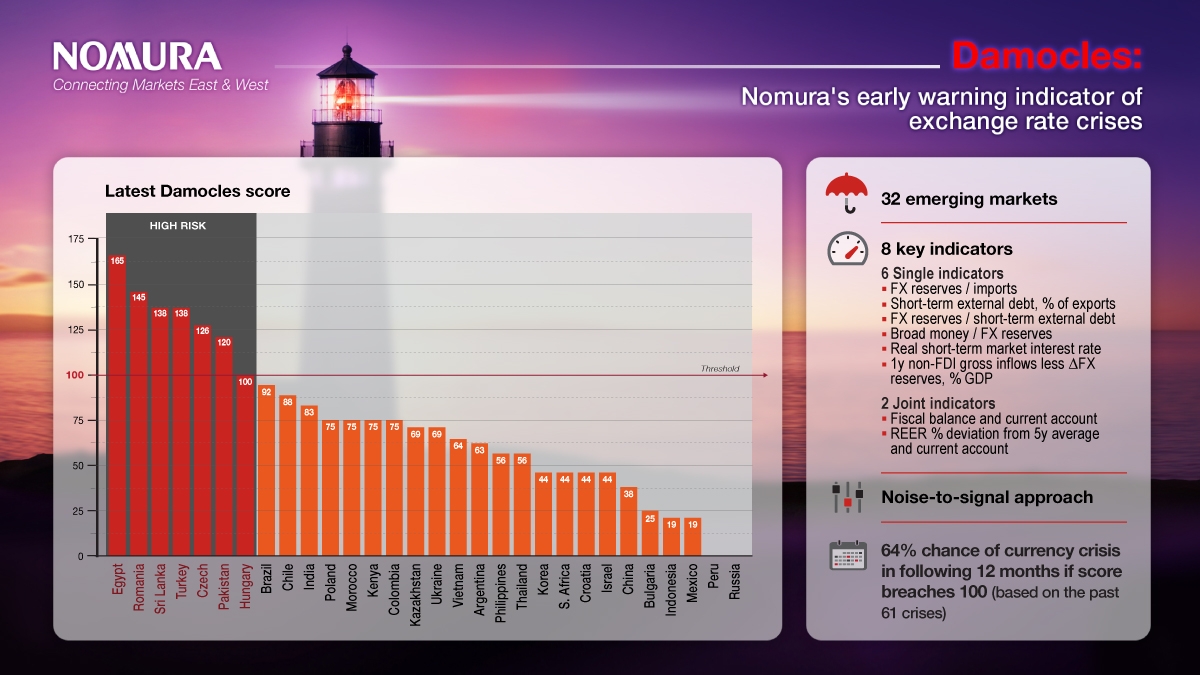It is a trying time for emerging markets (EM). Most have barely recovered from the pandemic, but now face a multitude of pressures: high inflation, negative real interest rates, limited fiscal space, weaker balance of payments and thinning FX reserves. Looking ahead, a looming economic downturn and more Fed rate hikes could continue to challenge EM.
Damocles, our early warning model of EM exchange rate crises, can be a useful tool to warn of possible triggers. Whenever the Damocles index exceeds 100, it is interpreted as a warning that the country is vulnerable to an exchange rate crisis in the next 12 months. The model correctly signaled 64% of the past 61 crises in our sample of 32 countries, with data going back 26 years.
In this update, Egypt, Romania, Sri Lanka, Turkey, Czech Republic, Pakistan and Hungary are currently at risk, all with scores over 100. Though the currencies of Egypt, Sri Lanka, Turkey and Pakistan have depreciated sharply in the last 12 months, Damocles indicates that they are not yet out of the woods due to their still-weak economic fundamentals including high inflation.
Compared to our last update in May 2022, Damocles scores have increased in 22 countries but decreased in only three, with the largest increases in the Czech Republic and Brazil.
The sum of the Damocles scores for the 32 EM countries has increased sharply to 2,234 from 1,744 in our last May 2022 update. This is the highest aggregate score since July 1999 and is not too far from the peak of 2,692 during the height of the Asian crisis, an ominous warning sign of the growing broad-based risk in EM currencies.
An important lesson from the large number of past crises is that risk premia do not follow a monotonic process, increasing steadily as risk increases; rather, investors’ perceptions of risk seem to develop in a binary on or off fashion. In other words, the re-pricing of EM risk premia can be very sudden and self-fulfilling, which is why early warning models such as Damocles can be useful.
For an in-depth look at our latest Damocles update, read the full report here.







